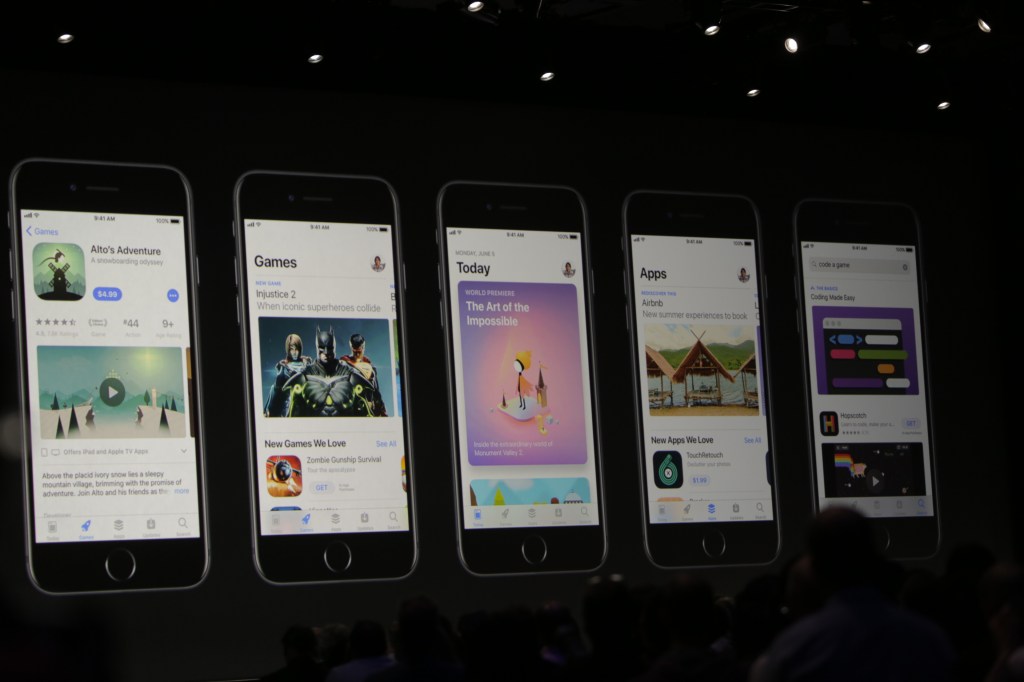Every time Apple’s developer conference rolls around we get a smattering of changes to the App Store Review guidelines. This corpus of rules can be, in turns, opaque and explicit, and has caused a decent amount of consternation over the years for developers as they try to read into how Apple might interpret one rule or another.
I remember the crushing of apps like AppShopper and AppGratis, for instance, under the boot heel of rule 2.25, which forbid apps from “duplicating” the features of the App Store. AppShopper eventually returned, finding a way around the rule by adding social features — something which the App Store still largely lacks, by the way.
This year the big issue appears to surround rule 4.2.6, which states that “Apps created from a commercialized template or app generation service will be rejected.”
Sounds fine, right? Sure, until you start thinking about how many apps take advantage of development assistance tools like PhoneGap — or even apps that provide super-nifty app construction flows like TapJet. Heck, even Apple has a deal with IBM that allows it to build apps for enterprise customers. These apps likely share many basic features and functions.
Essentially, there are questions about how far-reaching this rule would be when applied to the App Store. Was it purely about improving quality by reducing knock-offs? Or is it rooted in some deeper protectionist play?
Given that there was still some curiosity about how it would be applied, I did a little digging. Apple had no comment. But it rarely does, unless a rule becomes an issue in the press or among developers. I was, however, able to glean an understanding of the rule and its application by asking around.
The first thing to remember is that Apple always had a “do not clone” guideline in the document. It was never “OK” to straight-up copy an app, changing names and images and re-posting it as yours. Unfortunately, the increase in prevalence of mass production tools for apps, one-click templates and other enabling factors means that cheap junk apps have gone off the rails in the App Store over the past couple of years.
There are all kinds of schemes based around flooding the store with “templatized” apps. Some of them are clear — if a popular game like Flappy Bird or Red Ball hits the charts, there will be hundreds or thousands of clones within weeks that attempt to capitalize on the initial wave of popularity. But there are also other kinds of scams. Cloned apps that are essentially carriers for a single ad or conversion module or as a vessel for a subscription honeypot that charges the maximum amount for a sub. There are hundreds of copies of music-streaming apps that shill pirated content to make it harder to track them down one by one and allow for single-shot bursts of revenue capture before they’re found out or retired.
So, Apple decided to go on a bit of a tear and clean out the store. The new rule is tougher and more explicit in order to back up those removals.
It’s my understanding that this cleanup has resulted in hundreds of thousands (yes, multiple hundreds of thousands) of apps being removed from the store over the past year. That includes clones, but also things like apps that aren’t 64-bit compatible, apps that are unused (haven’t been downloaded in years) and other scammy boat trash.
That’s fairly straightforward, but what is the rule not about? What are the apps that seem like they could be caught up in this dragnet but that are actually probably safe? As far as I can tell, Apple is pretty clearly not trying to kill app-creation tools that allow people to customize and publish apps without knowing or writing all of the code.
That’s important, given where the industry at large is heading.
Basically, if we get to a point where you or I can build an original and customizable app that feels unique without writing a single line of code, this rule would not prevent it. Given that the coding industry (especially in the AI space) is veering toward the practice of program synthesis, this future-proofs the App Store somewhat, while not diluting Apple’s protectionist powers.
So, assembly suites or app-creation tools probably don’t have anything to fear from these new rules unless they’re in the business of pumping out nearly identical rubber-stamp apps.
One other signal that people in the “creating apps for other people” space should probably look out for is account listings. Apple will very likely not be excited about you shipping apps for other people on the App Store under your own account. Separate accounts for every entity that is responsible for its own support is probably your best-case scenario. That said, there are gray areas here where studios may publish games from many individual creators — but ask yourself, “who does the support?”
That’s probably the best way to look at it.
So the rule isn’t necessarily the doomsday scenario for app creators that it may have looked like, but it does give notice to the clone factories that Apple is trying to end that particular plague.































Comment